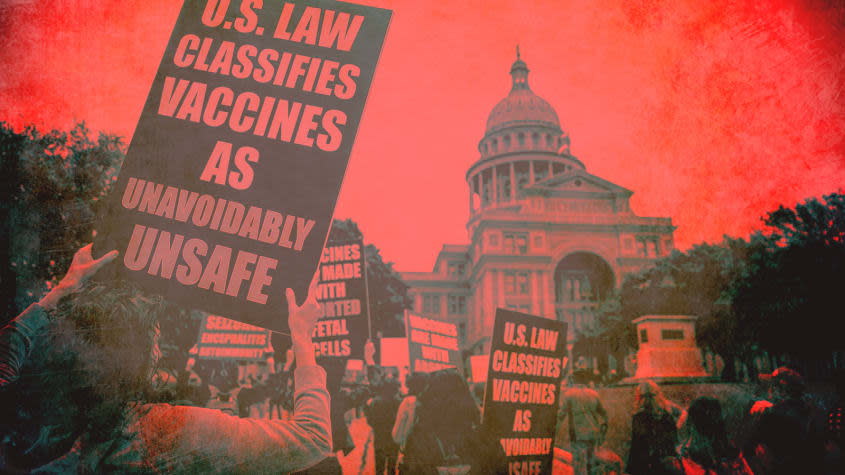The needless loss of 22,000 lives in Florida and Texas

Effective vaccines against the coronavirus have been widely available and free across the country since May. Yet in that time, about 150,000 people have died of COVID-19. Low vaccine uptake is largely to blame — regions with high rates of vaccination have done comparatively well, while those with low rates have suffered shattering outbreaks that crushed hospital systems.
As detailed at The Lancet, Pratha Sah and other scientists conducted an experiment to estimate what this meant in Texas and Florida. Their method is simple: Take the best-performing states (Vermont, Connecticut, Massachusetts, Maine, and Rhode Island, which achieved an average of 74 percent of adults vaccinated by July 31) as a benchmark for what high vaccine use could achieve, then run a computer simulation to calculate how much transmission, hospitalization, and death from COVID-19 could have been avoided in less-vaccinated Texas and Florida if they'd met that benchmark.
The study found that if Texas and Florida had kept up with the leaders, they would have prevented approximately:
1,311,900 COVID-19 cases
95,000 hospital admissions
22,000 deaths
Similar calculations could be run elsewhere, with similarly miserable results. Today, big chunks of the Midwest, Mountain West, and Great Plains regions are still far, far below herd immunity levels of vaccination, and sure enough, they are seeing Delta variant waves as temperatures cool off and socializing moves indoors. The more vaccine uptake can be encouraged or mandated, the more lives will be saved.
You may also like
Madonna makes Jimmy Fallon sweat, remove coat in 'disturbed' interview
Texas GOP gubernatorial candidate Allen West hospitalized with COVID-19
No. 2 House Republican Steve Scalise slammed for refusing to say 2020 election wasn't stolen

